How it operates and the intricacies involved are explored in Arman Bayev’s interview with Digital Business as part of the “100 Startup Stories of Kazakhstan” project. In the interview, the founder of Proportunity discusses the business model, the willingness of Kazakhstan’s people to take risks, and the platform’s plans to evolve into an Islamic bank.
Just click “Invest”
— The startup idea stemmed from my personal requirement to acquire commercial real estate for my business. With my family’s diverse asset portfolio and my involvement in a repair-related business, I began contemplating effective ways to invest in property and procure an office space under terms that would be favorable for all parties involved.
I was drawn to the crowdfunding approach, where funds are pooled together and then utilized collectively. As I delved into global use cases, I came to the realization that this concept was effective. So, I thought, why not introduce it in Kazakhstan?
That’s how our journey with the crowd investment platform commenced in 2019.
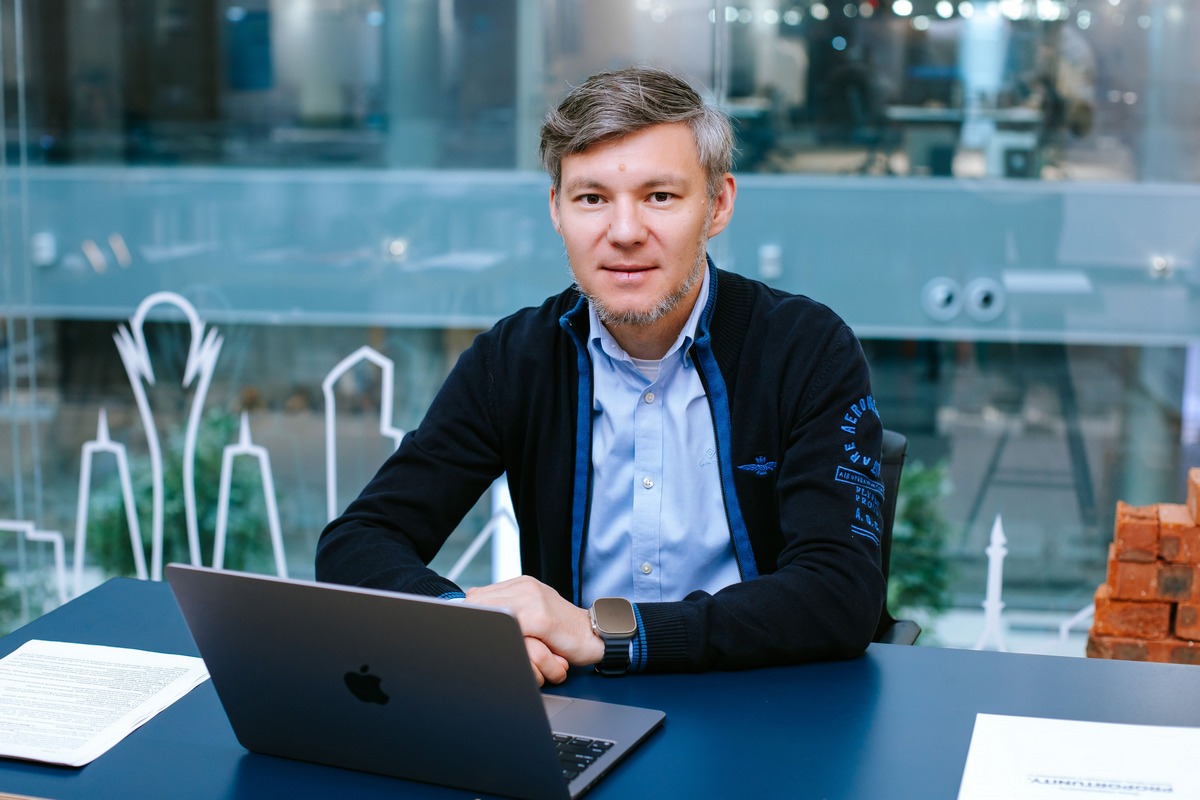
— How does the startup work?
— Initially, we choose the property assets. Depending on their unique characteristics and the selected investment strategy, one of the four funds – St. Reit, Lend Invest, Short Invest, or REPE – oversees the asset’s sale. Each of these funds adheres to a distinct investment philosophy and caters to a specific audience, including those interested in assisting entrepreneurs in acquiring commercial real estate, risk enthusiasts, individuals inclined towards residential properties, and more.
Once all the essential verifications are carried out, the property asset is included on the platform. Users can access essential information about it and click “Invest.” Subsequently, we proceed to sign the agreements. When there’s a complete pool of investors willing to participate in this asset, they contribute the necessary amounts.
And that’s the process – the project becomes operational. Our responsibility is to lease out the property, facilitate resale, or undertake any other actions in line with the fund’s investment policy. After a certain period, investors begin to receive dividends and recoup their investments.
— Do you acquire the property in advance, or is it only purchased once you secure investors
— In practice, our initial step is to announce on the platform that we intend to acquire a specific property item. We proceed with the purchase only if we manage to gather the necessary funds. If not, we refrain from making the purchase.
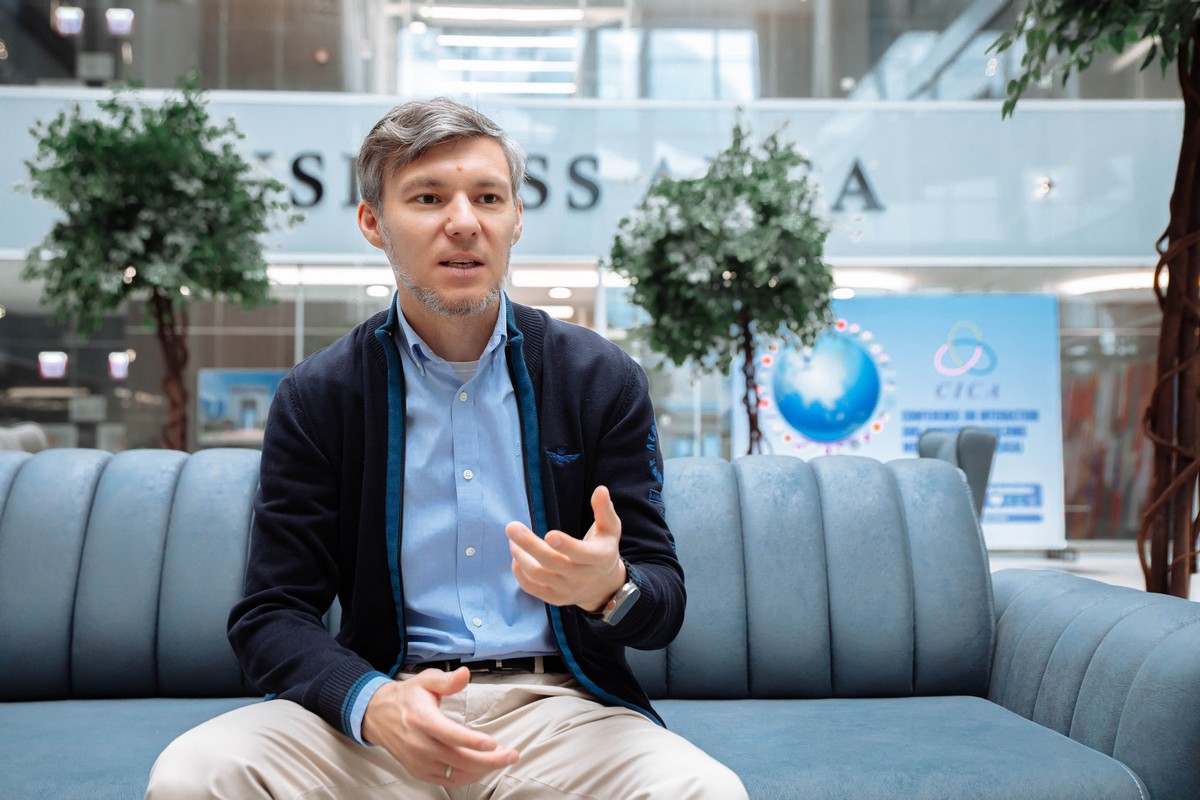
— What sets investing with Proportunity apart from the conventional approach of buying a commercial property and leasing it out?
— Well, on the surface, not much. However, there’s a significant distinction – purchasing an entire 100-square-meter property typically demands 50 million tenge or more. Through our platform, you can start with just one square meter.
Furthermore, we assume responsibility for the leasing process. Apart from these aspects, there isn’t a substantial difference in other regards.
— What is the minimum investment threshold for utilizing your platform?
— We offer various investment strategies and a range of assets, but as a general rule, we initiate investments starting from one square meter, which currently equates to approximately 360 thousand tenge.
— From a legal standpoint, what does the investor obtain under the agreement? Is it ownership of a specific square meter?
— In the context of co-ownership, investors receive several legal documents, including an agreement with the platform, the foundation agreement of the special-purpose company, the sale and purchase agreement, and a risk declaration. Essentially, individuals become co-founders of the legal entity of the special-purpose company where the property is listed on the balance sheet.
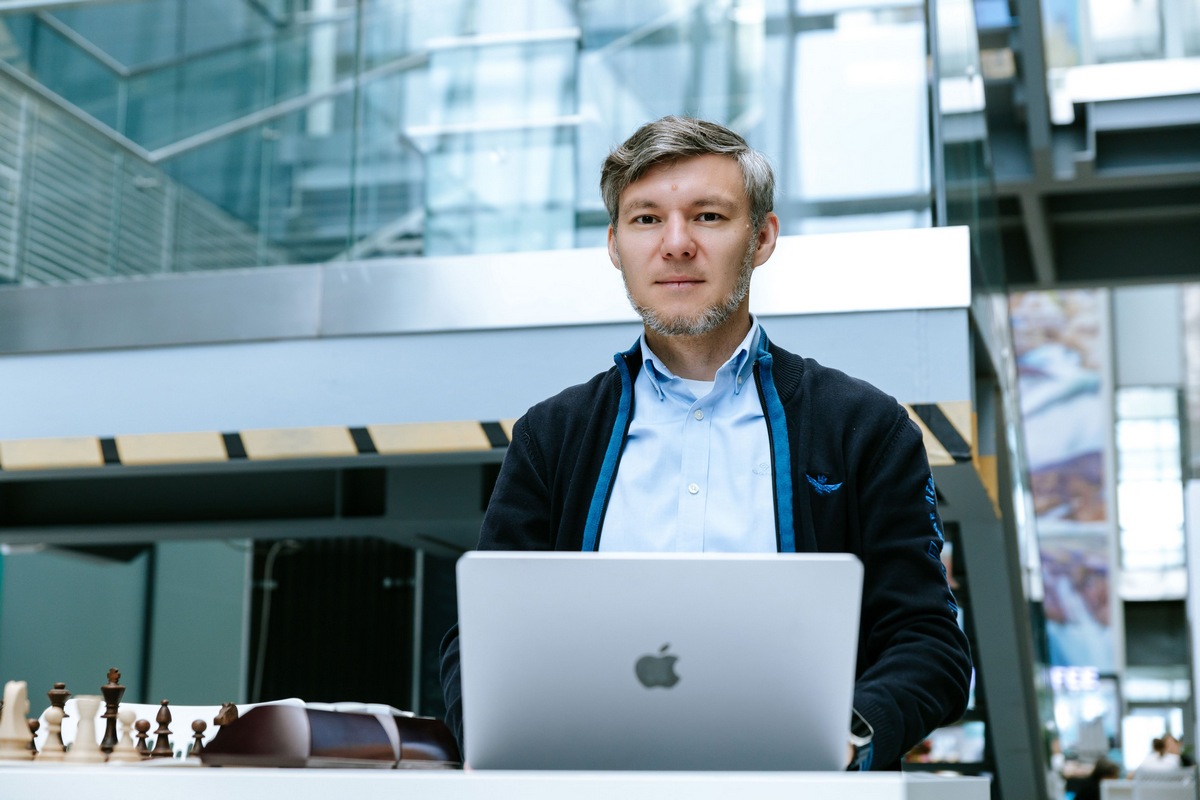
— Is it possible for me to sell my one square meter investment prematurely if I choose to do so?
— Indeed, it is feasible to divest a share in the company, either through the platform or independently, utilizing the standard sale and purchase agreement.
— Square meters are undoubtedly a stable asset, but they do come with inherent risks. Do you offer any guarantees to your investors in this regard?
— Legally, we do not furnish any guarantees, and this is explicitly articulated in the agreement. The primary assurance lies in the tangible property itself.
For instance, if we acquire an investment property and encounter challenges in leasing or selling it, it doesn’t imply that the investment is lost. The funds remain invested in the property, and eventually, we will secure a lease, make a sale, or find a suitable resolution. This will enable us to reimburse the principal debt to investors and offer a certain level of profitability.
In the event that the property encounters technical default for any reason, we still ensure the return of the invested funds and provide additional compensation, averaging at 25% per annum.
— During the project’s operation, have there been any assets that experienced complete failure?
— No, there haven’t been any instances where we operated at a complete loss. While there were profits, they occasionally fell short of our initial expectations, such as achieving 20% instead of the anticipated 27%, for example.
There was a minor delay in the apartment sale at one point, which meant investors had to wait longer for the transaction to be finalized. Nevertheless, they eventually received both their principal and profits, albeit within a six-month timeframe instead of the initially projected two months. As compensation, we added an additional 2 percentage points.
There are instances where entrepreneurs make delayed lease payments, resulting in a slight delay in investors receiving their income by a few days. While some may express dissatisfaction, I consistently reassure them that as entrepreneurs, we are well aware of the inherent risks. The payment will ultimately be fulfilled; it’s just a matter of patiently waiting.
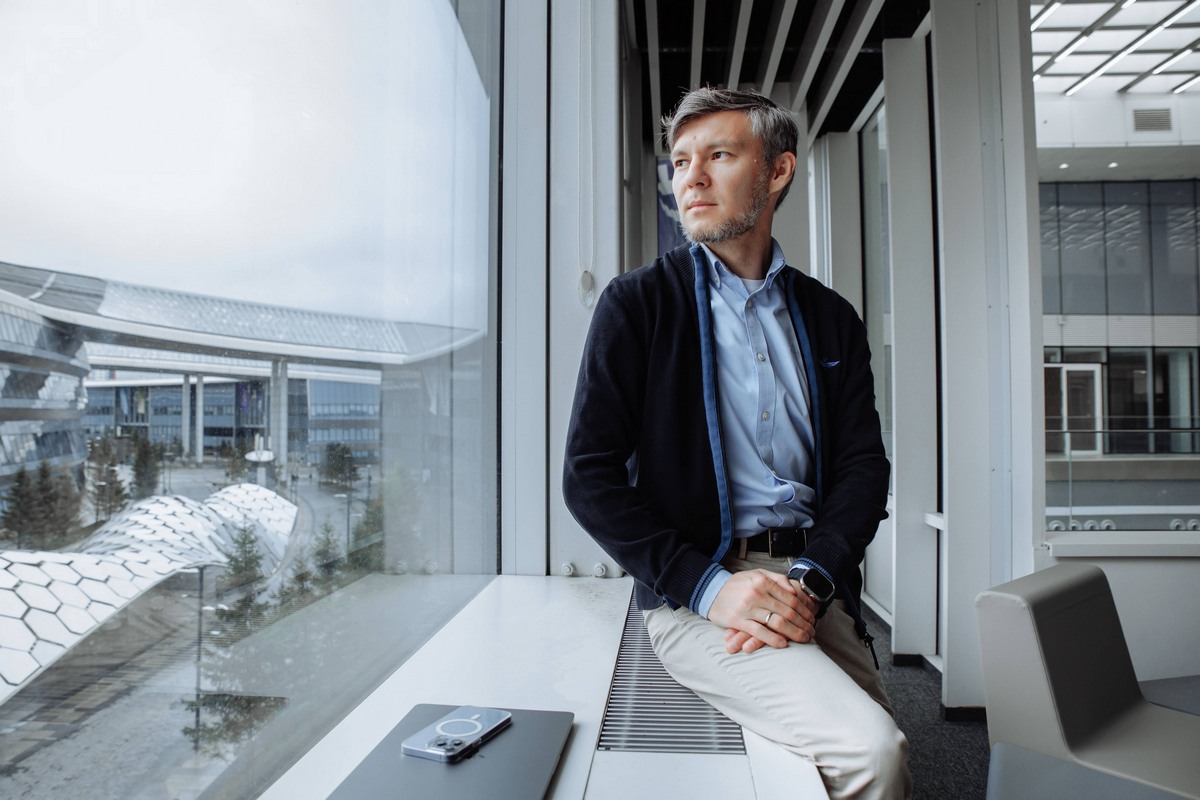
Investing in something other than apartments tends to be more captivating
— Could you provide the statistics regarding the platform’s performance, such as the number of individuals who have invested through Proportunity?
— We’ve had approximately seven thousand investors, with around 500 of them considered active. Currently, we are engaged with 24 assets, and the company’s annual turnover amounts to 6 billion tenge.
— What generates revenue for your project, and is it financially sustainable?
— Our income primarily comes from commissions, which are divided into two types: transaction fees and success fees. The transaction fee is relatively modest, ranging from 2% to 4%, while we claim a 20% share of the profits. To illustrate, if we successfully lease out an asset, earning 100 thousand tenge for the investor, we retain 20 thousand tenge as our fee.
Even with the current limited number of operational assets, we are still able to maintain profitability, and we possess the necessary resources for further development.
— What criteria do you use to identify assets that have good potential for investment?
— We employ around 100 fundamental assessment criteria, including factors such as whether the location is on a main road, traffic volume, the floor level, window placement, presence of columns, layout, technical specifications, and more. We conduct a thorough evaluation, taking into account every relevant aspect.
Over the past three years, residential property investment has been appealing, thanks to Kazakhstan’s favorable low-cost mortgage program, accessible to nearly everyone. However, residential property tends to be more speculative in nature, where you purchase with the aim of selling at a profit. In the broader, long-term perspective, commercial property remains a compelling choice for investment, as it has historically demonstrated appreciation in value, and lease rates continually ascend. Presently, our portfolio predominantly consists of commercial properties.
— Do you assess properties in regions?
— Our primary focus is on Astana and Almaty, but we do evaluate properties in other regions as well. It’s worth noting that regional assets have their unique characteristics; while their value is appreciating, the rental income tends to be lower. In contrast, in the capital cities, property prices may not experience as rapid growth, but rental income remains attractive.
Currently, we are particularly keen on land plots in the regional areas.
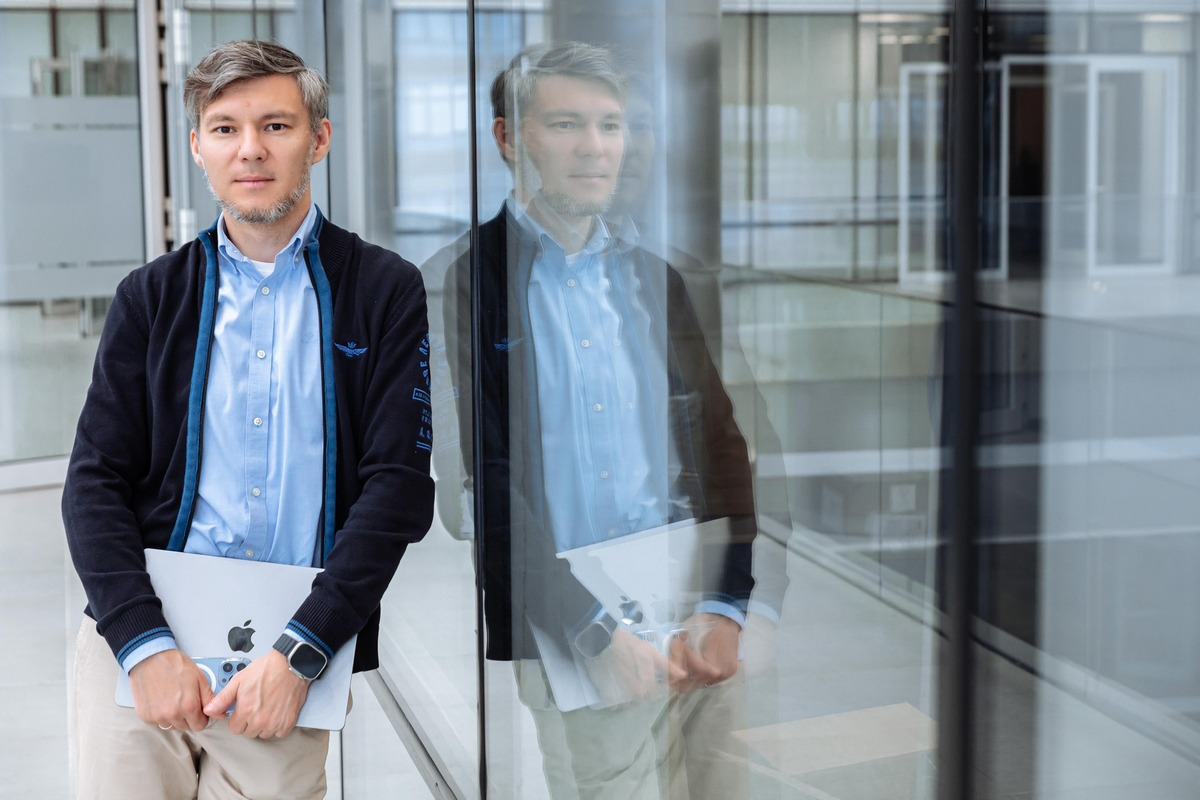
Islamic Financial Principles
— Can you provide a profile of your typical investor?
—Primarily, our investors are individuals involved in entrepreneurial activities. Approximately 80% of them are not direct users of the properties they invest in, while the remaining 20% are entrepreneurs who acquire shares in properties they actively utilize.
Women represent a substantial segment of our investors, accounting for approximately 30%, which is somewhat unconventional within this industry.
In terms of age demographics, our investor base includes a substantial number of individuals aged 35 and above. Additionally, we have attracted a younger audience, primarily consisting of well-compensated IT professionals seeking to diversify their investment portfolios..
We do have individuals who approach us with the intention of trying property investment. However, to be candid, this is a somewhat less involved scenario, as the investor isn’t directly managing the property – that’s our responsibility. From the perspective of platform users, it resembles a more advantageous form of deposit investment.
Recently, we’ve observed a growing interest from individuals seeking to align with Islamic financial principles. Given that our financial product, which involves lease with the right of purchase, conforms to the Islamic financial standard known as declining musharaka, it has attracted these individuals.
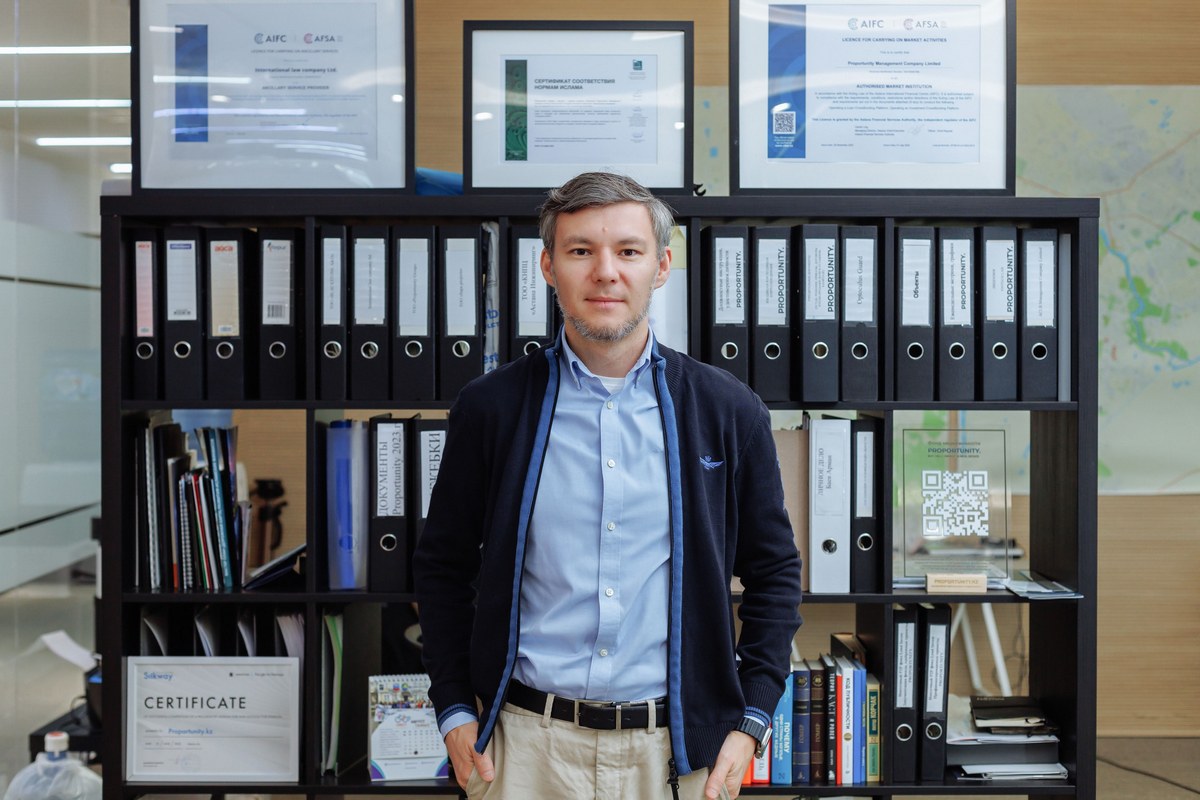
— What led to the inception of the concept involving Islamic finance principles?
— Initially, we didn’t emphasize this aspect, but later we made a deliberate choice to concentrate on it. For one, I personally adhere to these principles. Additionally, we began to receive a consistent stream of inquiries from individuals interested in Islamic finance. We saw this as an opportunity to broaden our audience. It’s worth noting that the presence of Islamic finance options doesn’t affect individuals of different religions or those who are religion-neutral in their investment decisions.
— Which other target demographics are you aiming to reach?
— Working with prominent corporate investors, such as those from Qatar, Saudi Arabia, UAE, who may consider investing in Kazakhstan through our platform, could be a compelling prospect. We have the capability to serve as operators and market experts in this context.
— Based on your experience, how willing are people in Kazakhstan to divert their funds from traditional banks and invest in alternative financial instruments?
— We can even provide rough estimations. Considering all forms of alternative investments, the capacity of the Kazakhstan market is roughly estimated at 2 billion tenge per month. If we divide this figure by 500 thousand tenge, we arrive at around four thousand people in Kazakhstan participating. Among them, approximately 20% repeat their investments within a year, leading to roughly three thousand participants each month. Multiplying this by 12 yields an estimated 36 thousand individuals, of which seven thousand are our clients.
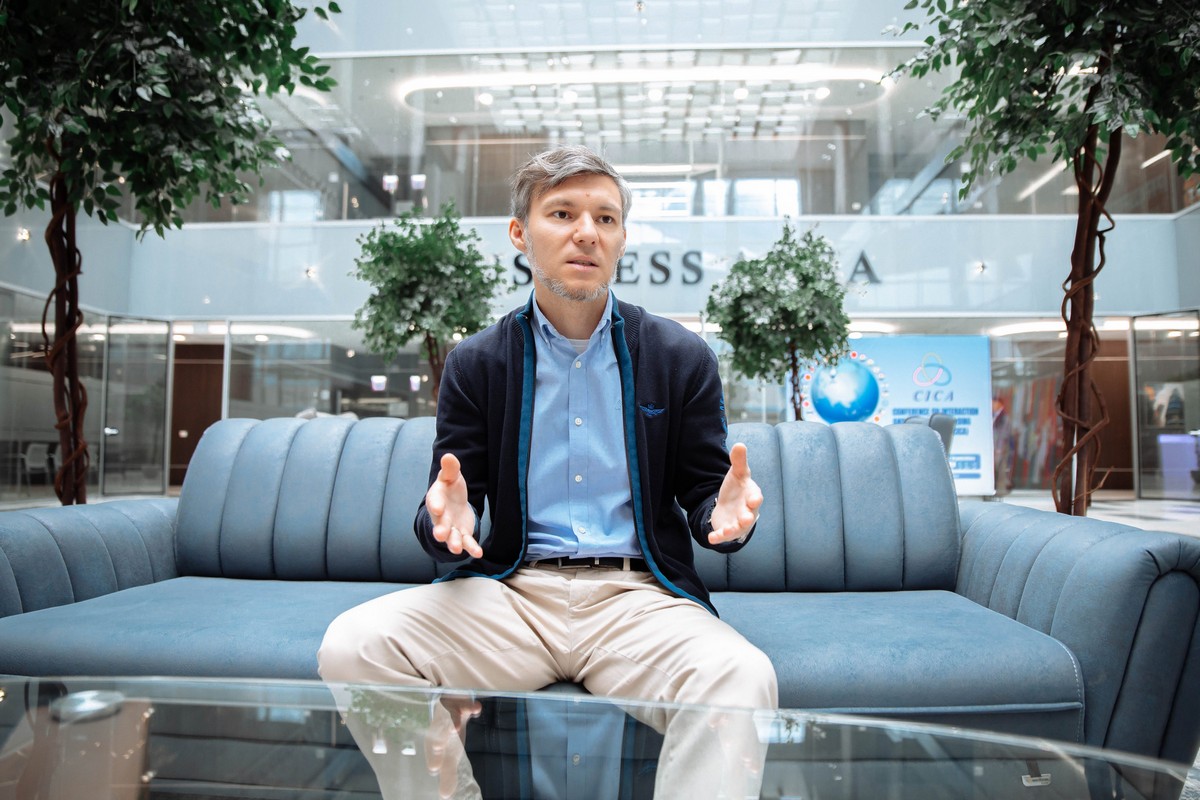
— What measures do you take to distinguish your platform from various financial pyramid schemes?
— In comparison to pyramid schemes, our platform offers significantly lower profitability, which in itself sets us apart. We don’t need to make elaborate distinctions because of this fundamental difference.
We prioritize transparency in our operations by openly sharing details on how we generate profits. We provide real purchase and selling prices for all transactions, making it possible for anyone to replicate similar transactions. This transparency contrasts with the ambiguity often associated with pyramid schemes.
Continuously enhancing our supervisory board composition is another aspect of our commitment to legitimacy. We enlist market leaders in their respective industries, who lend their reputation to affirm that our operations are aboveboard. Furthermore, we have secured licenses from regulators, obtained Islamic finance compliance certificates, and established partnerships with organizations like the muftiat. These efforts collectively demonstrate the integrity of our activities.
From crowdfunding to banking
— Did you attract investors for the project development?
— Our primary source of development funding has been our own resources. There was one instance where we collaborated with a prominent construction company. In exchange for a minority share, they offered support. This occurred during the startup’s early stages when we required additional funding to foster the idea’s growth.
— Do you require a significant strategic investor at this time, and if so, what would be the intended purpose for seeking such an investment?
— Indeed, we are continuously seeking such partners. One specific instance is our financing program aimed at assisting entrepreneurs in acquiring commercial properties, which necessitates a substantial strategic partner capable of financing a portion of the required borrowings.
We are currently engaged in discussions with Islamic banks and actively reaching out to individuals in Qatar, Saudi Arabia, and the UAE. Recently, our project has also garnered interest from potential partners in Germany. However, fluctuations in exchange rates present a challenge, as the funding would be in euros, pounds, or dollars, but the investments would be in tenge here.
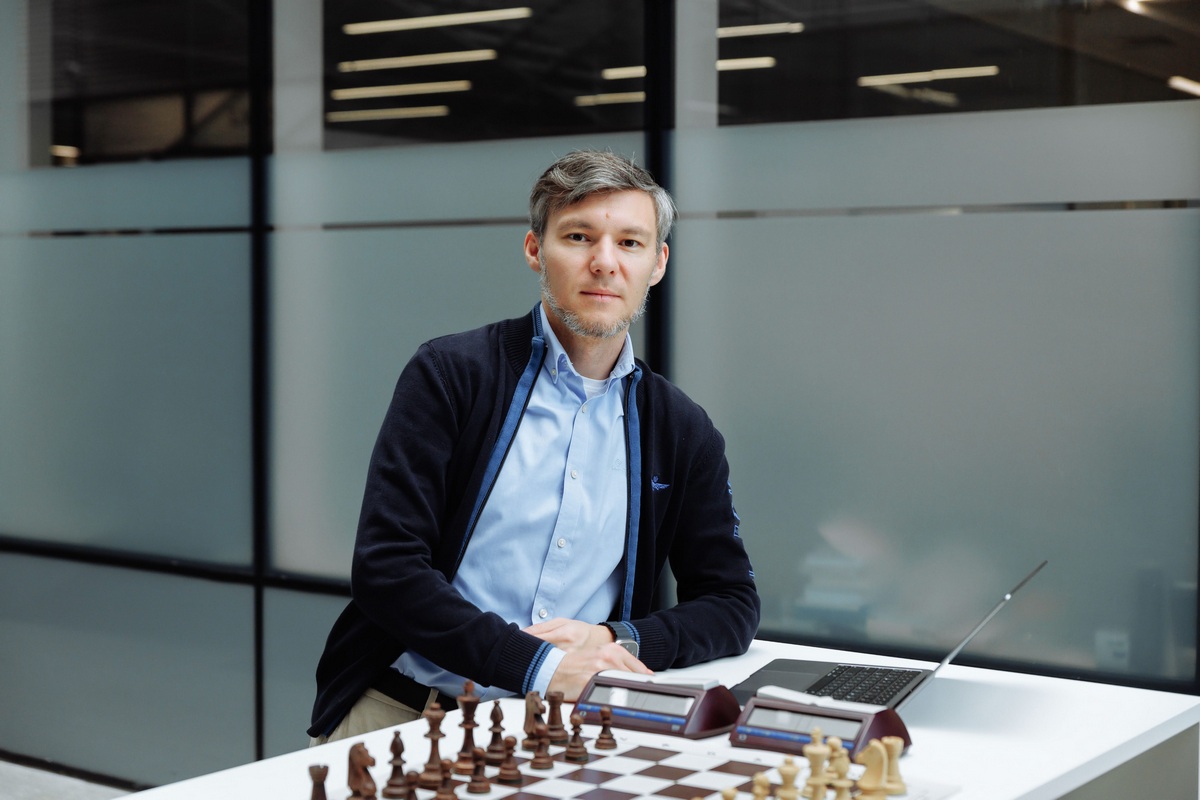
— Could you outline Proportunity’s upcoming development plans?
— Our primary objective at the moment is to secure a banking license and establish ourselves as the Islamic Bank of Real Estate in Kazakhstan. We anticipate that this process will take approximately six months, and we are already in the midst of obtaining the license. Our approach involves working within the framework of the Astana International Financial Center, as it offers a relatively smoother path with transparent regulations.
— How did the journey from crowdfunding to banking happen?
— First and foremost, our experience with the platform has taught us effective money management. However, investing in property doesn’t yield the same level of profitability as compared to monitoring shares and engaging in other speculative and high-risk instruments.
Secondly, as previously mentioned, we’ve begun to attract an Islamic audience. This prompted us to consider the idea of transitioning into a full-fledged bank and expanding our service offerings to cater to a broader clientele. In the current landscape, the Kazakhstan market is still relatively untapped and growing. Kazakhstan is an Islamic country, yet there isn’t a dominant player among Islamic banks. Consequently, we intend to fill this gap and become a prominent Islamic bank in the region.
— Will you continue your involvement in property investment?
— Absolutely, property investment will remain a part of our distinctive offerings. However, our service portfolio will expand to encompass new financial instruments such as acquiring services, deposits, account servicing, installment options, and more. Additionally, we have plans to build an ecosystem around our core services..
— How do you intend to employ to draw individuals to a new bank that lacks an established reputation in the market?
— Our initial approach will revolve around our existing investor base, emphasizing the transformation from a platform to a fully-fledged bank and the additional opportunities and financial instruments we now provide.
Following that, we will concentrate on attracting the Islamic audience. In Kazakhstan, there are approximately 1.8 million individuals aged 18-65 who aspire to adhere to Islamic financial principles. We intend to offer them high-quality services including banking cards, deposits with competitive profitability rates surpassing those of traditional banks, and attractive mortgage options, facilitated by our collaborations with construction companies.
I believe that by positioning ourselves as a specialized Islamic bank with a focus on property, we can rapidly secure our market share.
— Are there plans to expand your startup to international markets, and have you made any previous attempts to do so?
— We possess the expertise to operate in other countries, but our current primary focus is on advancing our presence within Kazakhstan, particularly due to our ongoing transformation into a bank.
Simultaneously, we are dedicated to enhancing our platform. An updated version is on the horizon, and it promises to be exceptional. It will facilitate property listings, share resale, communication, blogging by investment brokers, fundraising for other projects, asset tracking, and serve as a management company. In essence, it will evolve into a mega-platform. Our plan is to eventually expand internationally with this platform.
We’ve previously made attempts to engage with potential partners in Uzbekistan, Kyrgyzstan, Russia, Moldova, and Romania. Additionally, we explored opportunities in Ukraine before the conflict emerged, aiming to collaborate with established local players for collective property purchase initiatives. However, for various reasons, we have not yet achieved success in other countries, and our current operations remain limited to Kazakhstan. Nonetheless, this is only our current status, and we aspire to expand internationally in the future.
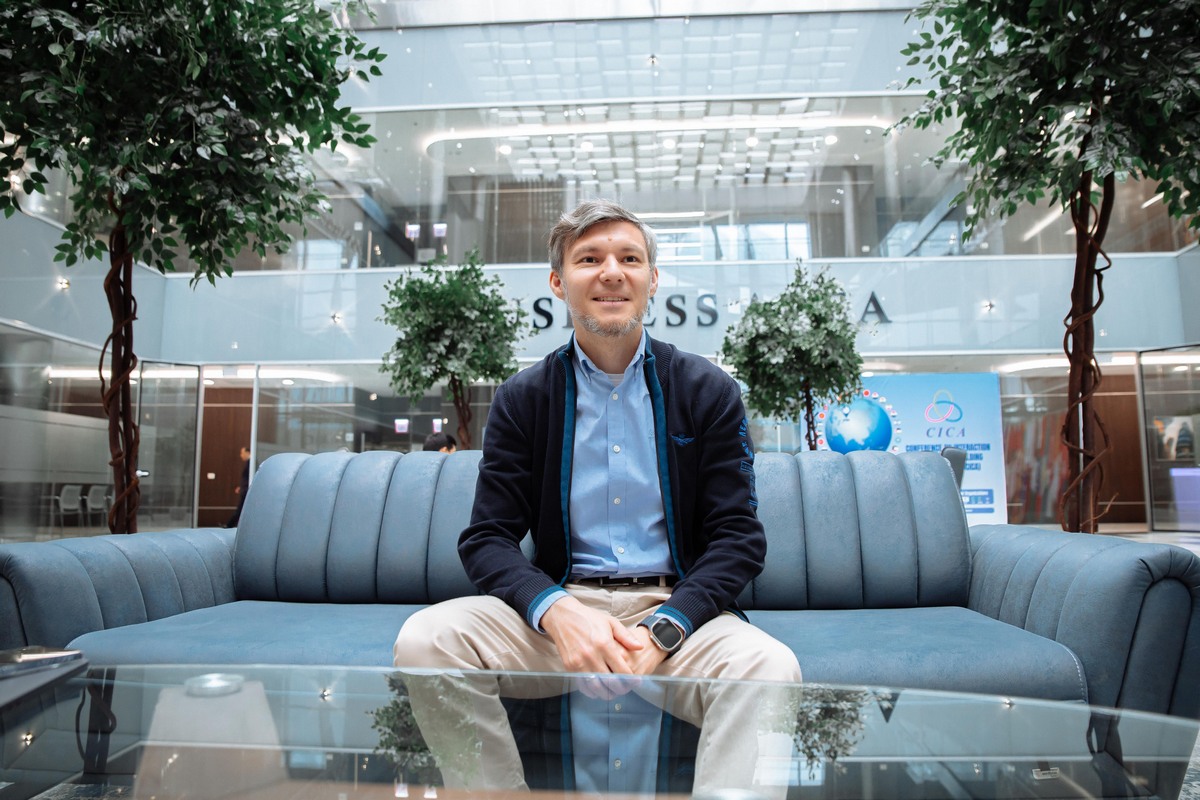
Expertise for external investments
— What is the team working on Proportunity?
— Our team currently comprises 14 members, encompassing various divisions such as legal, technical, management, as well as sales and client servicing roles.
— How do you motivate people?
— The primary source of motivation is undeniably the financial bonuses tied to meeting KPIs. Additionally, the C-level management team is intrigued by the project’s ongoing progress. Given our long standing collaboration, we all share a genuine interest in the project’s growth and evolution.
— What knowledge or insights do you acquire through your participation in accelerator programs?
— Participation in accelerators offers us a wealth of valuable insights and benefits. With external funding, we gain access to a wealth of expertise, invaluable insights, a heightened sense of competition, media exposure, and the opportunity for high-quality networking, including connections with potential investors. Moreover, it provides us with an external perspective on our endeavors.
Recently, we achieved finalist status in the third round of the Silkway Accelerator by Astana Hub and Google for Startups. We are also gearing up to participate in the Digital Bridge program. An important criterion in these hub battles is the “social story.” Our mortgage P2P fund, Lend Invest, embodies a philosophy of fostering entrepreneurship through investments. An illustrative example of this ethos can be found on our website, where a video showcases a young girl contemplating how to raise funds to buy a car. Through our platform, she ultimately helps an entrepreneur launch a coffee shop, embodying the impact and social narrative integral to our mission.
Indeed, it appears that we possess a significant social component in our investment approach. Many investors seek strategies that not only yield returns but also provide a sense of fulfillment through assisting others. I find this aspect quite commendable.
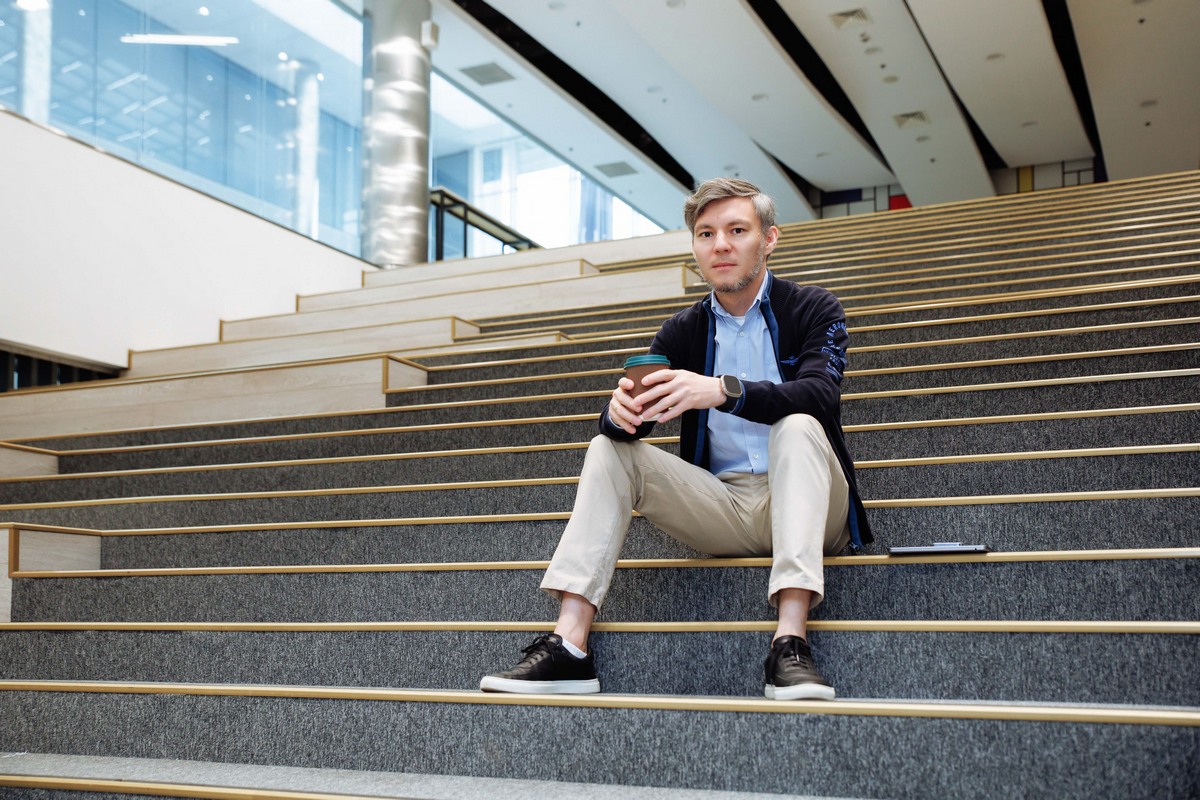
How it operates and the intricacies involved are explored in Arman Bayev’s interview with Digital Business as part of the “100 Startup Stories of Kazakhstan” project. In the interview, the founder of Proportunity discusses the business model, the willingness of Kazakhstan’s people to take risks, and the platform’s plans to evolve into an Islamic bank.
Just click “Invest”
— The startup idea stemmed from my personal requirement to acquire commercial real estate for my business. With my family’s diverse asset portfolio and my involvement in a repair-related business, I began contemplating effective ways to invest in property and procure an office space under terms that would be favorable for all parties involved.
I was drawn to the crowdfunding approach, where funds are pooled together and then utilized collectively. As I delved into global use cases, I came to the realization that this concept was effective. So, I thought, why not introduce it in Kazakhstan?
That’s how our journey with the crowd investment platform commenced in 2019.

— How does the startup work?
— Initially, we choose the property assets. Depending on their unique characteristics and the selected investment strategy, one of the four funds – St. Reit, Lend Invest, Short Invest, or REPE – oversees the asset’s sale. Each of these funds adheres to a distinct investment philosophy and caters to a specific audience, including those interested in assisting entrepreneurs in acquiring commercial real estate, risk enthusiasts, individuals inclined towards residential properties, and more.
Once all the essential verifications are carried out, the property asset is included on the platform. Users can access essential information about it and click “Invest.” Subsequently, we proceed to sign the agreements. When there’s a complete pool of investors willing to participate in this asset, they contribute the necessary amounts.
And that’s the process – the project becomes operational. Our responsibility is to lease out the property, facilitate resale, or undertake any other actions in line with the fund’s investment policy. After a certain period, investors begin to receive dividends and recoup their investments.
— Do you acquire the property in advance, or is it only purchased once you secure investors
— In practice, our initial step is to announce on the platform that we intend to acquire a specific property item. We proceed with the purchase only if we manage to gather the necessary funds. If not, we refrain from making the purchase.

— What sets investing with Proportunity apart from the conventional approach of buying a commercial property and leasing it out?
— Well, on the surface, not much. However, there’s a significant distinction – purchasing an entire 100-square-meter property typically demands 50 million tenge or more. Through our platform, you can start with just one square meter.
Furthermore, we assume responsibility for the leasing process. Apart from these aspects, there isn’t a substantial difference in other regards.
— What is the minimum investment threshold for utilizing your platform?
— We offer various investment strategies and a range of assets, but as a general rule, we initiate investments starting from one square meter, which currently equates to approximately 360 thousand tenge.
— From a legal standpoint, what does the investor obtain under the agreement? Is it ownership of a specific square meter?
— In the context of co-ownership, investors receive several legal documents, including an agreement with the platform, the foundation agreement of the special-purpose company, the sale and purchase agreement, and a risk declaration. Essentially, individuals become co-founders of the legal entity of the special-purpose company where the property is listed on the balance sheet.

— Is it possible for me to sell my one square meter investment prematurely if I choose to do so?
— Indeed, it is feasible to divest a share in the company, either through the platform or independently, utilizing the standard sale and purchase agreement.
— Square meters are undoubtedly a stable asset, but they do come with inherent risks. Do you offer any guarantees to your investors in this regard?
— Legally, we do not furnish any guarantees, and this is explicitly articulated in the agreement. The primary assurance lies in the tangible property itself.
For instance, if we acquire an investment property and encounter challenges in leasing or selling it, it doesn’t imply that the investment is lost. The funds remain invested in the property, and eventually, we will secure a lease, make a sale, or find a suitable resolution. This will enable us to reimburse the principal debt to investors and offer a certain level of profitability.
In the event that the property encounters technical default for any reason, we still ensure the return of the invested funds and provide additional compensation, averaging at 25% per annum.
— During the project’s operation, have there been any assets that experienced complete failure?
— No, there haven’t been any instances where we operated at a complete loss. While there were profits, they occasionally fell short of our initial expectations, such as achieving 20% instead of the anticipated 27%, for example.
There was a minor delay in the apartment sale at one point, which meant investors had to wait longer for the transaction to be finalized. Nevertheless, they eventually received both their principal and profits, albeit within a six-month timeframe instead of the initially projected two months. As compensation, we added an additional 2 percentage points.
There are instances where entrepreneurs make delayed lease payments, resulting in a slight delay in investors receiving their income by a few days. While some may express dissatisfaction, I consistently reassure them that as entrepreneurs, we are well aware of the inherent risks. The payment will ultimately be fulfilled; it’s just a matter of patiently waiting.

Investing in something other than apartments tends to be more captivating
— Could you provide the statistics regarding the platform’s performance, such as the number of individuals who have invested through Proportunity?
— We’ve had approximately seven thousand investors, with around 500 of them considered active. Currently, we are engaged with 24 assets, and the company’s annual turnover amounts to 6 billion tenge.
— What generates revenue for your project, and is it financially sustainable?
— Our income primarily comes from commissions, which are divided into two types: transaction fees and success fees. The transaction fee is relatively modest, ranging from 2% to 4%, while we claim a 20% share of the profits. To illustrate, if we successfully lease out an asset, earning 100 thousand tenge for the investor, we retain 20 thousand tenge as our fee.
Even with the current limited number of operational assets, we are still able to maintain profitability, and we possess the necessary resources for further development.
— What criteria do you use to identify assets that have good potential for investment?
— We employ around 100 fundamental assessment criteria, including factors such as whether the location is on a main road, traffic volume, the floor level, window placement, presence of columns, layout, technical specifications, and more. We conduct a thorough evaluation, taking into account every relevant aspect.
Over the past three years, residential property investment has been appealing, thanks to Kazakhstan’s favorable low-cost mortgage program, accessible to nearly everyone. However, residential property tends to be more speculative in nature, where you purchase with the aim of selling at a profit. In the broader, long-term perspective, commercial property remains a compelling choice for investment, as it has historically demonstrated appreciation in value, and lease rates continually ascend. Presently, our portfolio predominantly consists of commercial properties.
— Do you assess properties in regions?
— Our primary focus is on Astana and Almaty, but we do evaluate properties in other regions as well. It’s worth noting that regional assets have their unique characteristics; while their value is appreciating, the rental income tends to be lower. In contrast, in the capital cities, property prices may not experience as rapid growth, but rental income remains attractive.
Currently, we are particularly keen on land plots in the regional areas.

Islamic Financial Principles
— Can you provide a profile of your typical investor?
—Primarily, our investors are individuals involved in entrepreneurial activities. Approximately 80% of them are not direct users of the properties they invest in, while the remaining 20% are entrepreneurs who acquire shares in properties they actively utilize.
Women represent a substantial segment of our investors, accounting for approximately 30%, which is somewhat unconventional within this industry.
In terms of age demographics, our investor base includes a substantial number of individuals aged 35 and above. Additionally, we have attracted a younger audience, primarily consisting of well-compensated IT professionals seeking to diversify their investment portfolios..
We do have individuals who approach us with the intention of trying property investment. However, to be candid, this is a somewhat less involved scenario, as the investor isn’t directly managing the property – that’s our responsibility. From the perspective of platform users, it resembles a more advantageous form of deposit investment.
Recently, we’ve observed a growing interest from individuals seeking to align with Islamic financial principles. Given that our financial product, which involves lease with the right of purchase, conforms to the Islamic financial standard known as declining musharaka, it has attracted these individuals.

— What led to the inception of the concept involving Islamic finance principles?
— Initially, we didn’t emphasize this aspect, but later we made a deliberate choice to concentrate on it. For one, I personally adhere to these principles. Additionally, we began to receive a consistent stream of inquiries from individuals interested in Islamic finance. We saw this as an opportunity to broaden our audience. It’s worth noting that the presence of Islamic finance options doesn’t affect individuals of different religions or those who are religion-neutral in their investment decisions.
— Which other target demographics are you aiming to reach?
— Working with prominent corporate investors, such as those from Qatar, Saudi Arabia, UAE, who may consider investing in Kazakhstan through our platform, could be a compelling prospect. We have the capability to serve as operators and market experts in this context.
— Based on your experience, how willing are people in Kazakhstan to divert their funds from traditional banks and invest in alternative financial instruments?
— We can even provide rough estimations. Considering all forms of alternative investments, the capacity of the Kazakhstan market is roughly estimated at 2 billion tenge per month. If we divide this figure by 500 thousand tenge, we arrive at around four thousand people in Kazakhstan participating. Among them, approximately 20% repeat their investments within a year, leading to roughly three thousand participants each month. Multiplying this by 12 yields an estimated 36 thousand individuals, of which seven thousand are our clients.

— What measures do you take to distinguish your platform from various financial pyramid schemes?
— In comparison to pyramid schemes, our platform offers significantly lower profitability, which in itself sets us apart. We don’t need to make elaborate distinctions because of this fundamental difference.
We prioritize transparency in our operations by openly sharing details on how we generate profits. We provide real purchase and selling prices for all transactions, making it possible for anyone to replicate similar transactions. This transparency contrasts with the ambiguity often associated with pyramid schemes.
Continuously enhancing our supervisory board composition is another aspect of our commitment to legitimacy. We enlist market leaders in their respective industries, who lend their reputation to affirm that our operations are aboveboard. Furthermore, we have secured licenses from regulators, obtained Islamic finance compliance certificates, and established partnerships with organizations like the muftiat. These efforts collectively demonstrate the integrity of our activities.
From crowdfunding to banking
— Did you attract investors for the project development?
— Our primary source of development funding has been our own resources. There was one instance where we collaborated with a prominent construction company. In exchange for a minority share, they offered support. This occurred during the startup’s early stages when we required additional funding to foster the idea’s growth.
— Do you require a significant strategic investor at this time, and if so, what would be the intended purpose for seeking such an investment?
— Indeed, we are continuously seeking such partners. One specific instance is our financing program aimed at assisting entrepreneurs in acquiring commercial properties, which necessitates a substantial strategic partner capable of financing a portion of the required borrowings.
We are currently engaged in discussions with Islamic banks and actively reaching out to individuals in Qatar, Saudi Arabia, and the UAE. Recently, our project has also garnered interest from potential partners in Germany. However, fluctuations in exchange rates present a challenge, as the funding would be in euros, pounds, or dollars, but the investments would be in tenge here.

— Could you outline Proportunity’s upcoming development plans?
— Our primary objective at the moment is to secure a banking license and establish ourselves as the Islamic Bank of Real Estate in Kazakhstan. We anticipate that this process will take approximately six months, and we are already in the midst of obtaining the license. Our approach involves working within the framework of the Astana International Financial Center, as it offers a relatively smoother path with transparent regulations.
— How did the journey from crowdfunding to banking happen?
— First and foremost, our experience with the platform has taught us effective money management. However, investing in property doesn’t yield the same level of profitability as compared to monitoring shares and engaging in other speculative and high-risk instruments.
Secondly, as previously mentioned, we’ve begun to attract an Islamic audience. This prompted us to consider the idea of transitioning into a full-fledged bank and expanding our service offerings to cater to a broader clientele. In the current landscape, the Kazakhstan market is still relatively untapped and growing. Kazakhstan is an Islamic country, yet there isn’t a dominant player among Islamic banks. Consequently, we intend to fill this gap and become a prominent Islamic bank in the region.
— Will you continue your involvement in property investment?
— Absolutely, property investment will remain a part of our distinctive offerings. However, our service portfolio will expand to encompass new financial instruments such as acquiring services, deposits, account servicing, installment options, and more. Additionally, we have plans to build an ecosystem around our core services..
— How do you intend to employ to draw individuals to a new bank that lacks an established reputation in the market?
— Our initial approach will revolve around our existing investor base, emphasizing the transformation from a platform to a fully-fledged bank and the additional opportunities and financial instruments we now provide.
Following that, we will concentrate on attracting the Islamic audience. In Kazakhstan, there are approximately 1.8 million individuals aged 18-65 who aspire to adhere to Islamic financial principles. We intend to offer them high-quality services including banking cards, deposits with competitive profitability rates surpassing those of traditional banks, and attractive mortgage options, facilitated by our collaborations with construction companies.
I believe that by positioning ourselves as a specialized Islamic bank with a focus on property, we can rapidly secure our market share.
— Are there plans to expand your startup to international markets, and have you made any previous attempts to do so?
— We possess the expertise to operate in other countries, but our current primary focus is on advancing our presence within Kazakhstan, particularly due to our ongoing transformation into a bank.
Simultaneously, we are dedicated to enhancing our platform. An updated version is on the horizon, and it promises to be exceptional. It will facilitate property listings, share resale, communication, blogging by investment brokers, fundraising for other projects, asset tracking, and serve as a management company. In essence, it will evolve into a mega-platform. Our plan is to eventually expand internationally with this platform.
We’ve previously made attempts to engage with potential partners in Uzbekistan, Kyrgyzstan, Russia, Moldova, and Romania. Additionally, we explored opportunities in Ukraine before the conflict emerged, aiming to collaborate with established local players for collective property purchase initiatives. However, for various reasons, we have not yet achieved success in other countries, and our current operations remain limited to Kazakhstan. Nonetheless, this is only our current status, and we aspire to expand internationally in the future.

Expertise for external investments
— What is the team working on Proportunity?
— Our team currently comprises 14 members, encompassing various divisions such as legal, technical, management, as well as sales and client servicing roles.
— How do you motivate people?
— The primary source of motivation is undeniably the financial bonuses tied to meeting KPIs. Additionally, the C-level management team is intrigued by the project’s ongoing progress. Given our long standing collaboration, we all share a genuine interest in the project’s growth and evolution.
— What knowledge or insights do you acquire through your participation in accelerator programs?
— Participation in accelerators offers us a wealth of valuable insights and benefits. With external funding, we gain access to a wealth of expertise, invaluable insights, a heightened sense of competition, media exposure, and the opportunity for high-quality networking, including connections with potential investors. Moreover, it provides us with an external perspective on our endeavors.
Recently, we achieved finalist status in the third round of the Silkway Accelerator by Astana Hub and Google for Startups. We are also gearing up to participate in the Digital Bridge program. An important criterion in these hub battles is the “social story.” Our mortgage P2P fund, Lend Invest, embodies a philosophy of fostering entrepreneurship through investments. An illustrative example of this ethos can be found on our website, where a video showcases a young girl contemplating how to raise funds to buy a car. Through our platform, she ultimately helps an entrepreneur launch a coffee shop, embodying the impact and social narrative integral to our mission.
Indeed, it appears that we possess a significant social component in our investment approach. Many investors seek strategies that not only yield returns but also provide a sense of fulfillment through assisting others. I find this aspect quite commendable.









